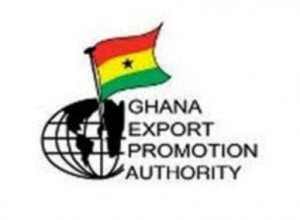GEPA holds training session for exporters
 The Ghana Export Promotion Authority (GEPA) is holding a-four-day training in export marketing fundamentals for exporters and banking officials across the country.
The Ghana Export Promotion Authority (GEPA) is holding a-four-day training in export marketing fundamentals for exporters and banking officials across the country.
The workshop is to support the export community to acquire managerial, technical and trade capacity as well as understand the current global export trends to give Ghana a competitive edge.
Mr Maxwell Osei-Kusi, the Director of Research speaking at the opening session, said the Authority would scale up marketing training programmes for exporters to enhance capacity and ensure they met required standards in the global market.
He said the Ghana Export School’s objective was to support the export community to acquire managerial, technical and trade capacity which would make them globally competitive.
He said courses offered are constantly reviewed and revised in light of international developments and changing requirements of Ghanaian export companies.
He said GEPA is ready to develop training modules to meet the needs of product associations and identified groups of persons.
Giving a gist of the performance of the Non Traditional Exports (NTEs) sector, Mr Osei-Kusi said exports grew steadily at an annual average rate of about 14.79 per cent from $777.59 million in 2005 to $2.514 billion in 2014.
However, in 2012 the total earnings saw a decline in earnings to $2.364 billion from $2.423 billion in 2011.
In 2013, earnings from the sector went up by 3.05 per cent to $2.436 billion.
He expressed the hope that the training would provide the opportunity to contribute towards a much stronger sector.
Mrs Agnes Gifty Adjei-Sam, the Deputy Director Trade Research and Information GEPA, said building the skills and capacities of exporters was very critical if the country’s goal of increasing export returns was to be achieved.
She said exporters needed to be schooled on recent trends and changes in the export market in order to remain competitive and also help the country to grow its export base.
Mrs Adjei-Sam said GEPA is also working to mainstream the services sector into the NTES Portfolio.
“GEPA is positioned in the national export system as a coordinating pivot for the various public and private sector trade agencies involved in trade development and facilitation,” she said.
Currently, there are over 500 different non-traditional export products categorized into Agricultural, Processed/Semi Processed and Handicrafts.
Among the topics being treated are Export Marketing Research, Product Planning and Product Adaptation, Legal Contracts and Negotiations, Sanitary and Photosanitary Specification and Export Procedures and Documentation.
The Ghana Export School was set up by GEPA, the National Export Trade Support Institution of the Ministry of Trade and Industry (MOTI) responsible for the facilitation, development and promotion of Ghanaian exports in 1987, to address the training needs of the export community.
In an interview some of the participants said the training would help them to understand the new trends in the export market and that the exposure and the new knowledge acquired would go a long way to help grow the businesses.
A banker said understanding the peculiar needs of exporters would help her department to know how to deal with the exporters.
Source: GNA
